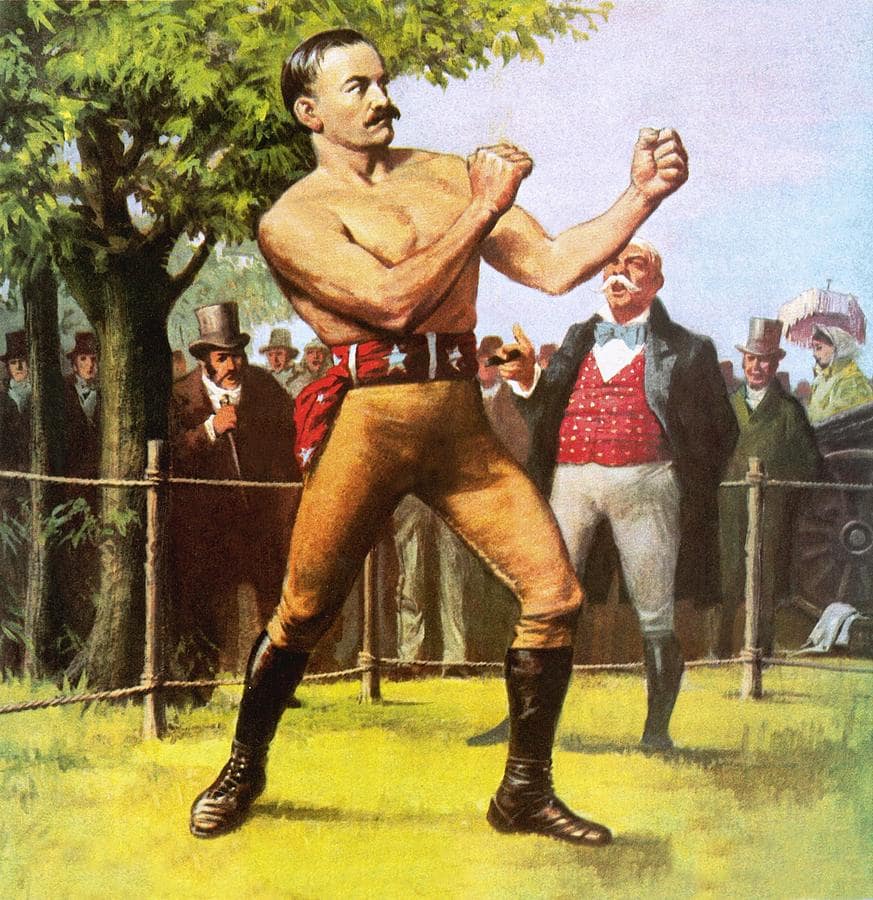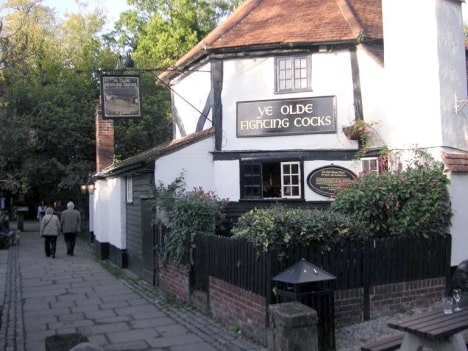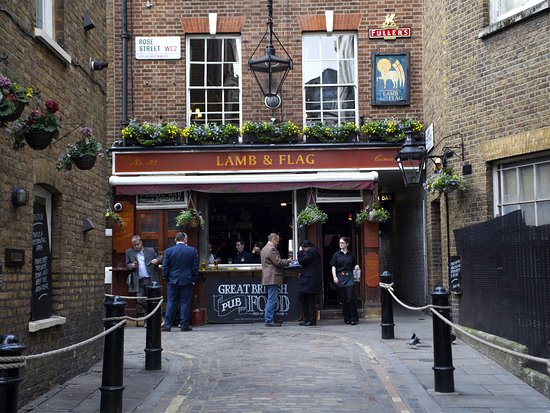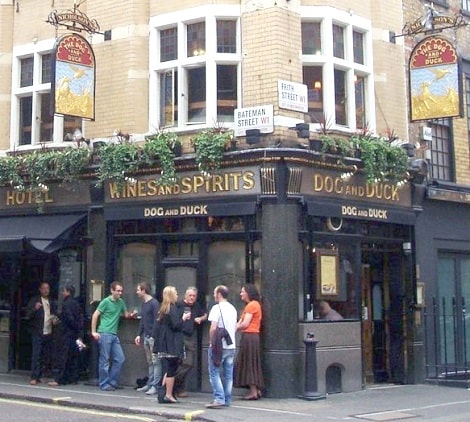 Where conflict and comfort collide, rivalry and acts of camaraderie abound, and where all can be solved with a cold, or at least cellar temperature pint of beer, the British pub is a social hubbub quite unlike any other.
Where conflict and comfort collide, rivalry and acts of camaraderie abound, and where all can be solved with a cold, or at least cellar temperature pint of beer, the British pub is a social hubbub quite unlike any other.Originating with Roman taverns, pubs developed to become the heart of British social life. But it has not always been just the promise of froth-topped pints that has lured British people out of the cold and into the cosy interior of the pub. Gambling, gaming and betting one’s life on the flip of a coin have also been an integral part of the experience.
Whilst some amusingly named games such as dwile flonking, which involved dancing about whilst attempting to avoid a beer soaked cloth, or “pedestrianism”, wagering how long it would take to walk, run or hop a certain distance, were not so sinister, but history reveals a much dirtier, darker side to popular pastimes.
British pubs in the 1700s and 1800s were awash with grisly sports of blood lust and cruelty, and many of these establishments are still standing today. Soho’s The Dog and Duck, now a friendly and accommodating watering hole, was once the site of ferocious games of duck baiting. Ducks were released into ponds with their wings constrained, so that whilst they were able to float atop the water, they were incapable of flying away. A dog would then be released into the pond, and the water-based battle would commence.
 Many London pub names hint at a darker past, however there is no confusion about what used to happen at ‘Ye Old Fighting Cocks’ in St Albans. This pub would have been host to ferocious tournaments involving cocks fitted with sharp steel or silver spurs. The birds, bred for high levels of stamina and strength, would attack one another for up to 25 minutes until eventually the weaker suffered a premature death. The Prevention of Cruelty to Animals Act in 1849 attempted to put an a stop to these cruel acts, but unfortunately the game continued to take place well into the 1900s, until owning such instruments associated with the ‘sport’ were officially banned.
Many London pub names hint at a darker past, however there is no confusion about what used to happen at ‘Ye Old Fighting Cocks’ in St Albans. This pub would have been host to ferocious tournaments involving cocks fitted with sharp steel or silver spurs. The birds, bred for high levels of stamina and strength, would attack one another for up to 25 minutes until eventually the weaker suffered a premature death. The Prevention of Cruelty to Animals Act in 1849 attempted to put an a stop to these cruel acts, but unfortunately the game continued to take place well into the 1900s, until owning such instruments associated with the ‘sport’ were officially banned. This passion for blood lust was not restricted solely to animal cruelty, but from man to man as hard-skinned, bare knuckle boxers took to the rings. The Lamb and Flag near Covent Garden developed a particularly brutal reputation for pugilism, even earning itself the nickname ‘The Bucket of Blood’. Pubs were often named after prizes fighters, whose solid-skinned fists could inflict brain damage, or even death, on their opponents.
This passion for blood lust was not restricted solely to animal cruelty, but from man to man as hard-skinned, bare knuckle boxers took to the rings. The Lamb and Flag near Covent Garden developed a particularly brutal reputation for pugilism, even earning itself the nickname ‘The Bucket of Blood’. Pubs were often named after prizes fighters, whose solid-skinned fists could inflict brain damage, or even death, on their opponents.The pubs or basements where these sports would have taken place were often referred to as ‘copper hells’, in reference to the lower class patrons who frequented them. In contrast, famous gentlemen’s clubs, such as Whites’ and Brooks’, were known as ‘golden halls’ and were reserved solely for the upper class.
 Such ‘golden halls’ would have been the stomping ground of the upper echelons, and provided for far less blood thirsty, although nonetheless absurd, games and wagers. A notable example of such took place at White’s between two members, who suggested that a man could survive for 12 hours under water. Allegedly the men hired a ‘desperate fellow’, sunk him in a ship and never heard from him again. A development from chocolate houses and coffee shops, these clubs provided the perfect social space for such careless acts, as well as a place to hold political discussions and partake in advantageous networking.
Such ‘golden halls’ would have been the stomping ground of the upper echelons, and provided for far less blood thirsty, although nonetheless absurd, games and wagers. A notable example of such took place at White’s between two members, who suggested that a man could survive for 12 hours under water. Allegedly the men hired a ‘desperate fellow’, sunk him in a ship and never heard from him again. A development from chocolate houses and coffee shops, these clubs provided the perfect social space for such careless acts, as well as a place to hold political discussions and partake in advantageous networking.So next time you are off to your favourite watering hole, take a brief stop to consider its history. Bloodlust, baiting and bets; if it is old enough, it is likely all of those things once took place within its walls. Thankfully, since the Betting Gaming and Lotteries Act 1963, pubs have cleaned up their image and brought in a more ‘family feel’, so that the only danger we face now is cheering for the wrong team on the TV screen.
